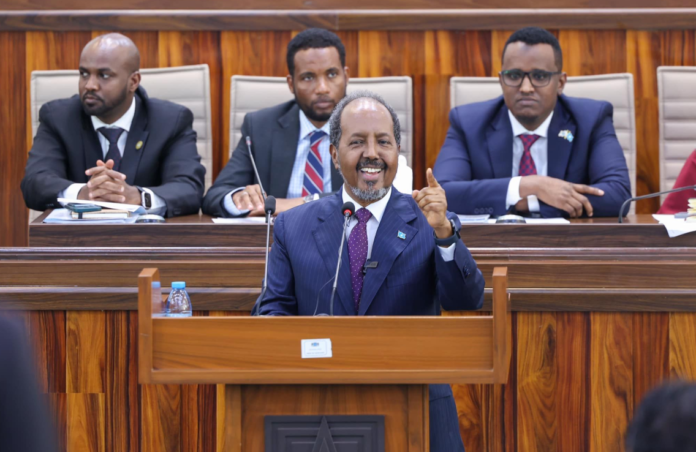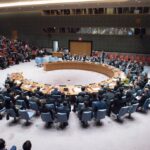In democratic countries, each citizen does have the right to vote, and each vote has equal value. In Somalia, such a right has been in denial for decades, despite being enshrined in the constitution. Now, each citizen has hope of valuing their vote as Somalia moves from decades of an indirect electoral system to a one-person, one-vote method.
A Historic Shift to “One Person, One Vote” in Somalia
Free and fair elections championed by President Hassan Sheikh Mohamud are a sign of Somalia’s progress in reforming its electoral system in recent years. His latest efforts to adopt a one-person, one-vote system restore each citizen’s dream to vote and the means to ensure that their voices are heard.
President Mohamud’s vision to hold popular elections by the end of his term in June 2026 not only gives the people the right to elect their leaders but also signals the end of the 4.5 clan-based power-sharing system, a method that has been denying citizens the right to cast their votes in every election being held in Somalia.
Somalia never had such a nationwide system since 1969, when General Siad Barre seized power. Instead of direct voting, clan affiliations have held sway in Somalia’s politics in the decades that followed. Top position roles, such as speaker, prime minister and president were allocated among the main groups. Both Lower and Upper Houses of parliament lawmakers, who in turn choose the president, are chosen by clan delegates.
Recognizing this system is a major setback for democracy, stability and sustainable development that Somalia needs, President Mohamud invited all regional state leaders to National Consultative Council (NCC) discussions. They addressed the war on al Shabab, an al Qaeda linked group and ways to hold direct elections for the first time in decades, signaling Somalia’s dedication to an inclusive path forward.
While free and fair elections are vital to strengthening democracy and ensuring political stability, the current 4.5 clan-based system in Somalia only gives clan elders the right to hold millions of Somali citizens’ vote hostage as they decide who joins parliament, and those chosen will then select the president. There is no doubt that this indirect system doesn’t help citizens achieve their goal of participating in leadership elections.
If adopted, President Mohamud’s push for one person, one vote will give each citizen a voice in selecting leaders, nurturing fairness, and reinforcing national unity.
President Mohamud Leads Push for Fair Elections and National Unity
In the executive branch, direct elections would give citizens a greater influence over leadership by electing a president directly, enhancing legitimacy and alignment with the public’s priorities. In the legislative branch, direct elections would allow citizens to choose representatives who better reflect their interests, creating a stronger foundation for accountability and public trust.
The move to “one person, one vote” is a key step in improving political stability in Somalia. By holding direct elections, people will have a clearer voice in choosing their leaders, reducing conflicts over who has the authority. Moving away from the old 4.5 clan-based system will allow leaders to be chosen by the public, rather than based on clan ties.
President Mohamud’s decision to give a voice to Somalis who never had the chance to choose their leaders is right. Every Somali citizen should be able to decide who leads them, especially when basic services like healthcare and education are hard to get, and people face so many daily struggles.
The government is already working in these areas, investing in projects that will help everyday Somalis. By letting people have a say in who leads, policies are more likely to reflect the things that matter most to them and that’s a key step toward the country’s progress.
In Somalia, citizens’ voices are overlooked because of the 4.5 system. Leaders are not elected by the people but by lawmakers chosen by clan elders, making people’s voices go unheard. So, Somalia can leave this clan-based power sharing system behind by adopting the one person, one vote method. This will help the people pick their leaders who act on their will and keep their promises, knowing that the people have the decision if they stay or leave behind their political careers.
Avv. Abdishakur Alasow Mohamud serves as First Secretary at the Somali Permanent Mission to the UN in New York. With extensive experience as a legal expert and diplomat, Mohamud is dedicated to promoting justice, upholding the rule of law, and enhancing Somalia’s presence on the global stage. For inquiries, please contact him at abdishakur@unmission.gov.so





